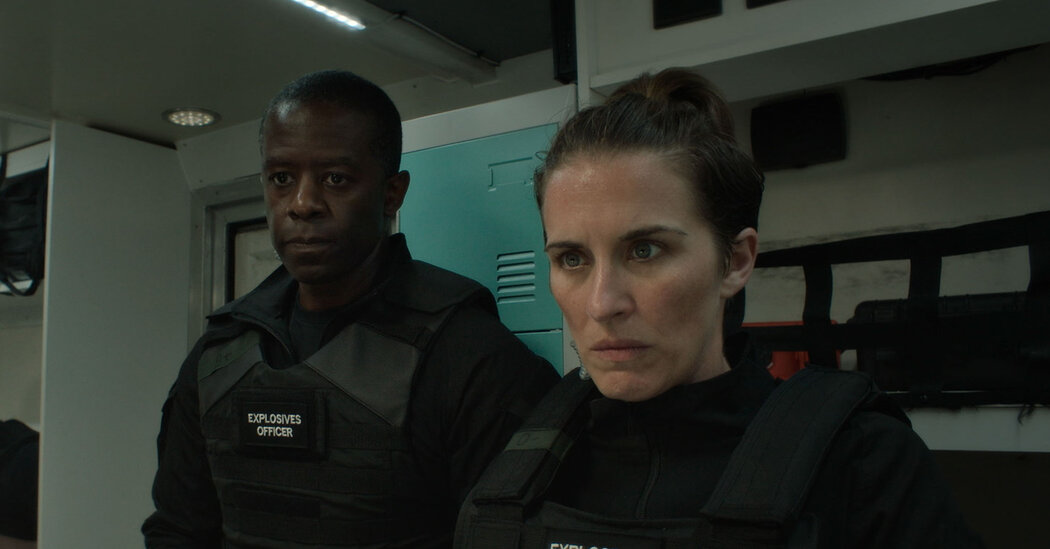
There are two kinds of people in the world: those who haven’t seen or heard of the British cop show “Line of Duty” and those who are rabid fans of it. It isn’t a great television series, or even a very good one, necessarily. But it has a loony, breathless intensity that sucks you in and a willingness to toy with its regular characters’ emotions, and question their motives, that is dramatically suspect but melodramatically potent. Through six seasons, it remains one of Britain’s most popular and honored TV shows.
Jed Mercurio, who created “Line of Duty” in 2012, created the equally batty “Bodyguard,” whose high-wire blend of bad-cop histrionics and romantic soap opera made its one season in 2018 as big a hit as “Line of Duty.” (It also drew a surprise Emmy nomination for best drama after it appeared on Netflix in America.) Earlier, he was known as a creator of medical dramas, and perhaps some clues to his writing style can be found in his original career as a doctor; his first show was called “Cardiac Arrest.”
Mercurio did not create “Trigger Point,” a new British series whose six-episode first season came to Peacock on Friday. But he’s the showrunner, and he developed it with its creator and writer, Daniel Brierley, and it has the Mercurio stamp: It’s nuts, in a benevolent and entertaining way that makes it easy to set aside your higher neural functions.
Where “Line of Duty” maintains a moral dimension by featuring a police internal-affairs unit, “Trigger Point” goes for almost pure pressure by focusing on a member of a London bomb-disposal team. The “Line of Duty” associations are powerful, though, because the intense (natch), trauma-scarred (naturally) protagonist of “Trigger Point” is played by one of the earlier show’s stars, Vicky McClure.
McClure is not the most expressive of performers — you tend to guess at her character’s emotions through how widely she opens her eyes — but she has a way of signaling tension in her movement, voice and gaze; something is always getting on her last nerve. That works well for Lana Washington, the “Trigger Point” heroine, whose characteristic scene involves running full speed into a place from which everyone else is being evacuated.
The show’s first season (a second has been ordered) has Lana confronting a string of explosions and near-misses; from what we see, the London police appear to get by with one bomb squad. The identity of the perpetrators is unclear; they’re terrorists, but we don’t know on which side of the fence they sit.
McClure’s character in “Line of Duty” is part of a three-person team; on “Trigger Point,” she has colleagues but she essentially carries the dramatic weight alone, and Brierley shapes the action to that embattled, solo point of view. Lana not only has to fight the faceless bombers — she also has to combat the panic-induced stupidity of the people she is trying to save. Bombs and their targets have trigger points, and in one scene after another we cringe as Lana yells at people to please just shut up and stand still.
“Trigger Point,” which is carried by the British commercial network ITV, has a slightly less crazed pace than the BBC’s “Line of Duty”; that may have to do, in part, with the necessity for ad breaks. But the narrative jury-rigging, free-range paranoia and benign neglect of plausibility are the same. (Viewers might also want to keep in mind Mercurio’s penchant for killing off major characters.) Sniping, gas mains, therapy and problematic sex are pulled into the mix along with the frequent explosions, and everything culminates in a ludicrous, delicious showdown which involves a dead switch, because of course it does.
It’s the Mercurio method: The show keeps blowing up in your face, and you keep coming back for more.




